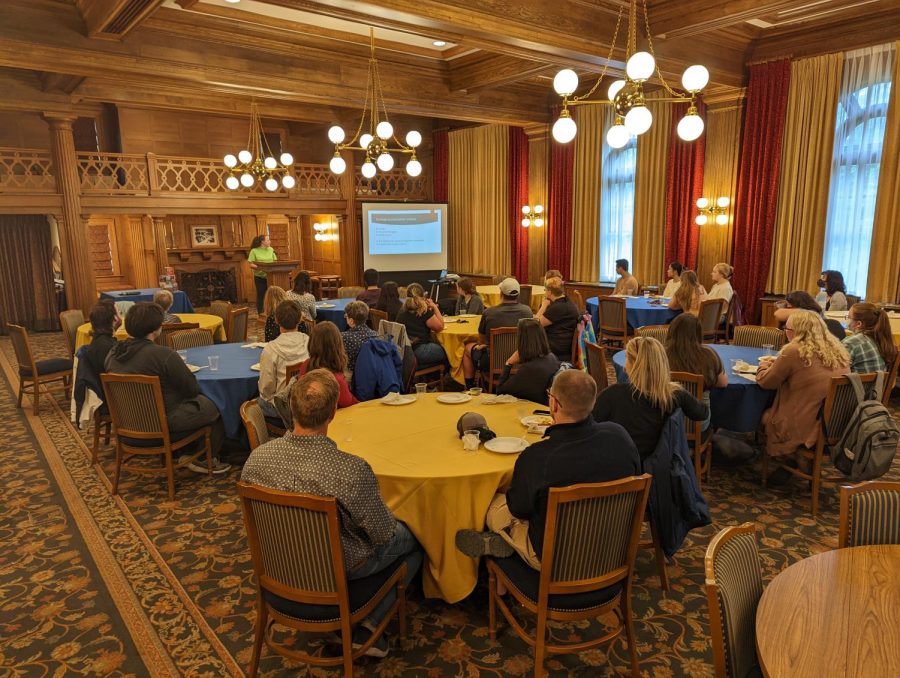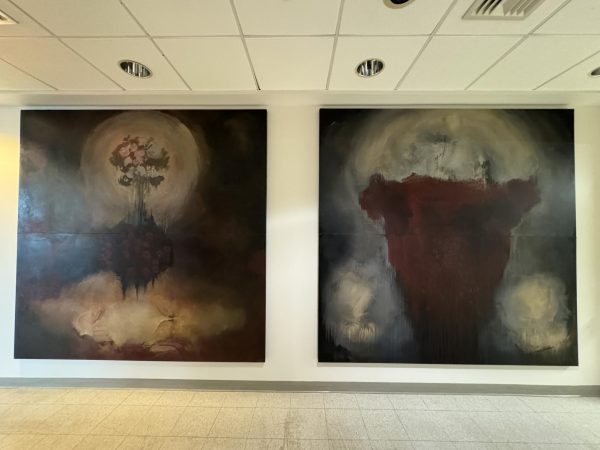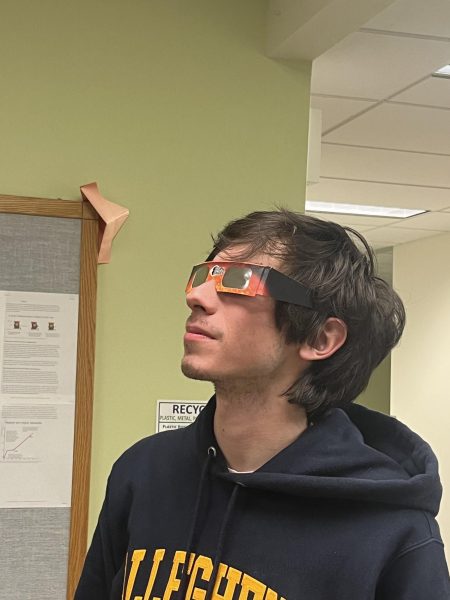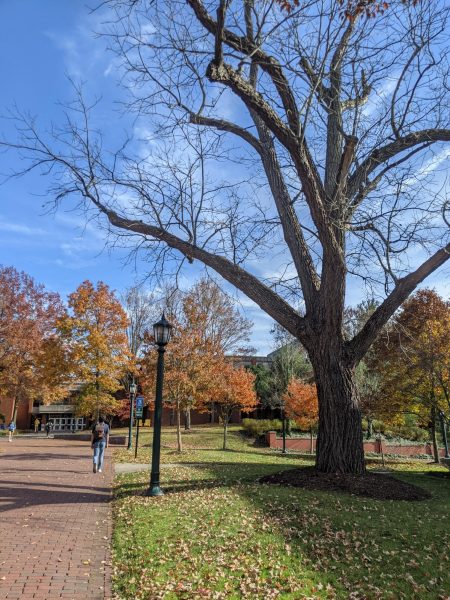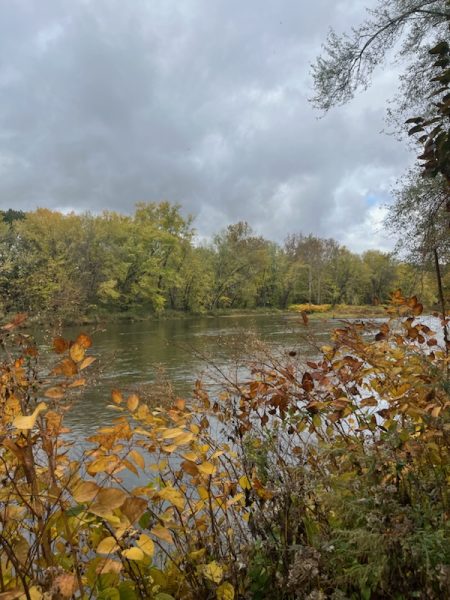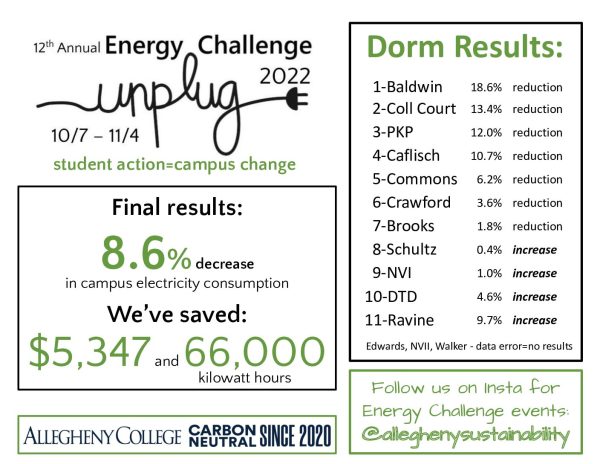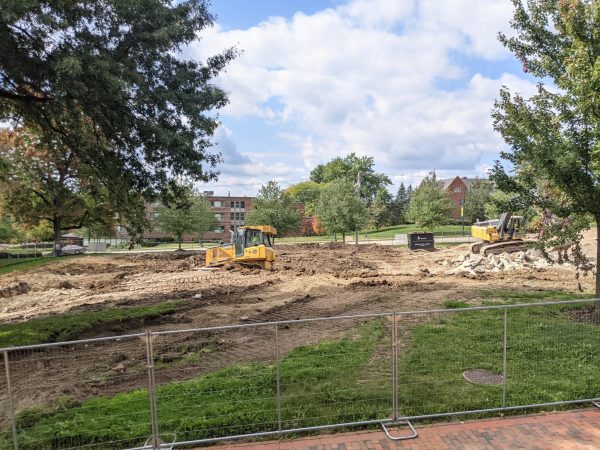URSCA students wrap on summer research
Photo contributed by Matthew Venesky
A student presents their research at an ACRoSS panel over the summer. Presentations were open to the campus community, and complimentary lunch was provided.
Campus was abuzz this past summer with students participating in the Undergraduate Research, Scholarship and Creative Activities program at Allegheny. The URSCA program was created to offer unique and individual research opportunities to undergraduate students before reaching the graduate level.
URSCA was originally founded in 2008 by Emeritus Professor of Biology Lee Coates. Associate Professor of Biology Matthew Venesky took up the role in January following the departure of his predecessor, Associate Professor of Neuroscience Aimee Knupsky.
This summer, around 70 students participated in research projects ranging four to eight weeks in length.
“We had a smaller group than in previous years, but for a lot of reasons I think that was good,” said Venesky. “It led to a really intimate experience between faculty and students, and also students and students.”
Students work on a wide range of research, including projects based in the natural sciences, social sciences and humanities.
“This isn’t typical research you would see of a first year going into second year,” said Hunter Goerman, ’25, a participant in the program.
Goerman’s project, done in collaboration with Ray Colabawalla, ’25, worked to highlight the natural ecotourist attractions present in Western Pennsylvania, as well as the local hotspots and attractions.
“This is a very large collaborative project that we’re working on, that most people don’t get the opportunity to do,” Goerman said.
The work consisted largely of traveling to the nine different counties that make up the “Glacier’s Edge,” a term used to describe much of Western Pennsylvania.
“I am an international student, and I’ve seen a fair bit of the U.S., but I have not seen a fair bit of Pennsylvania,” said Colabawalla. “This project has allowed me to see firsthand a lot of what Northwestern PA is really about.”
Their work was done under the advisory of Professor of Communication, Film and Theatre Ishita Sinha Roy, as well as Michael Williams, director of community engaged learning and research.
According to Sinha Roy, Goerman and Colabawalla’s work contributed to a larger regional effort to highlight natural assets and local communities.
“This initiative is really thinking about how we could combine environmental sustainability with economic initiatives that would attract ecotourism and support local initiatives,” said Sinha Roy.
Students participating in the URSCA program are able to get hands-on experience, not just in a lab, but out in communities.
“I feel like it kind of puts our names out there but it also puts Allegheny College’s name out there,” said Colabawalla. “What we’ve got from this URSCA experience is a wholly different understanding of Pennsylvania, and we’ve also got the opportunity to work very closely with our community partners.”
While URSCA project goals are primarily directed by students, there are often existing projects that advisors bring students on to help complete. Projects are sometimes years in the making, with multiple students contributing to them.
“The experience isn’t over yet,” said Colabawalla. “We have a long way to go.”
Dawson Thomas, ’23, spent their summer URSCA experience making a documentary for the Railroad Depot Museum in Downtown Meadville.
“I learned how to take my practices from Allegheny in my film classes and try to put forth a meaningful project for people to see, publicly,” Thomas said.
For many students, including Thomas, the URSCA program provides support — primarily financial — so they have the space to focus on their work.
“Their funding helped me be able to sustain myself over the summer and put all of my efforts into this project,” said Thomas. “It was very helpful in allowing me to have the creative liberty to put together something for the community”
Students interested in the URSCA summer program are invited to reach out to professors and faculty to discuss possible projects.
“Most students don’t realize that they can ask any faculty to work on a project with them, it doesn’t have to be from their major,” Sinha Roy said. “It’s not the one-shoe-fits-all model, and I really appreciate that. It allows enough room for different faculty and students to work on different types of projects.”
All students are invited to apply for the URSCA program, across all ages and disciplines. Sinha Roy explained that she often seeks out students who have not previously had the opportunity to perform independent research, much with the spirit of the program itself.
“Go and have that conversation,” Sinha Roy continued. “You’d be surprised at how you can be the star of your own show.”
Students participating in URSCA are also taught how to communicate their project with peers both in and outside of their discipline. The Allegheny College Research Seminar Series, held weekly over the summer, gives students the opportunity to present their projects’ progress or findings over a complimentary lunch.
“We get an opportunity to build some community, conversing with students or faculty that you may not typically converse with during the academic year,” Venesky said.
Students are also encouraged to participate or tune in to Venesky’s upcoming Gator TAILS —Talking About Inquiry, Learning and Scholarship — podcast, where he plans to interview summer research students on their experience and the work they completed. The podcast will be available to the public beginning sometime this semester.
Venesky encouraged students interested in joining the URSCA program to reach out to him.
“I am available to talk with students on a very regular basis,” he said.
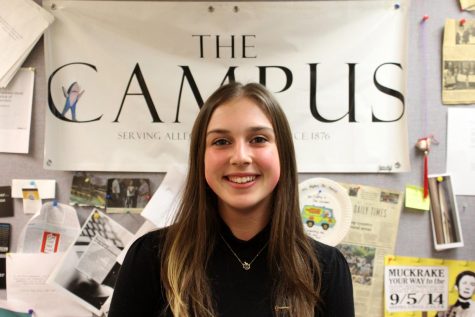
Lottie Mateyak is a senior from Tamaqua, Pennsylvania. She is a Biology major with a Writing minor. This is her first semester working for The Campus as...



